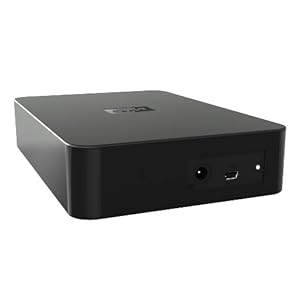Using External Hard Drives For File Backup and Data storehouse
External hard drives are one of the most common media for storing and backing up leading data files. Today's external drives are relatively cheap and transportable and can store large amounts of data. When you consider the inherent cost of losing sensitive data due to a computer crash, it makes a great deal of sense to buy a drive and store all of your primary files on it as a backup.
Using External Hard Drives For File Backup and Data storehouse

Using External Hard Drives For File Backup and Data storehouse
Using External Hard Drives For File Backup and Data storehouse
Using External Hard Drives For File Backup and Data storehouse
External hard drives are drives that can be acquired separately and related to your computer. External drives can perform all the same functions and store the same data as your computer's internal hard drive.
External hard drives are made by all the major computer manufacturers such as Maxtor, Western Digital, Sony, iOmega, Seagate and many others. Which model you select is a personal selection and should depend on a number of factors, including:
Storage Capacity. External hard drives vary greatly in the number of data hey can store. As a general rule, the greater the capacity, the higher the cost of the drive. External drives are rated in Gigabytes (Gb) or Terabytes (Tb). A terabyte is equal to 1,000 Gb. Typical drives can store everywhere from 500 Gb to 3 or more Tb.
When you're looking for a backup drive, a general rule of thumb is that you should multiply your back up needs by at least three.This ensures that your drive will be able to cope your data storehouse needs both now and in the future.
Cache size. The cache size determines how quickly you can copy files onto your drive. The cache is the high speed memory on the drive and serves as a buffer between the drive and the computer. When you're transferring files onto a drive, the drive often cannot keep up with the number of data arrival in. At this point, the high speed cache memory will temporarily store the incoming data until the drive can accept the extra data.
The benefit of having a large cache size is one of speed. The larger the cache size, the faster you can download files onto your hard drive. Devices with larger cache sizes are substantially more costly than those with lower cache sizes, so there is a trade off between speed and cost and you'll have to settle which is most leading for your personal circumstance.
Connectivity. Most external drives can be related straight through whether Usb or Firewire. To install the drive, you naturally have to plug it into your computer and succeed the instructions on the screen.
There are many advantages to using external drives for storage, just a few of which are:
Portability: External hard drives are relatively small and can be carried in a portfolio or someone else similar carrying case.
Storage Capacity: External hard drives can store a large number of data. For most personal or small business users, an external drive can cope more than adequate data to be used as a traditional backup device.
Convenience: External hard drives are relatively straightforward and easy to set up and use as a backup device.
Less vulnerable: External hard drives are not as vulnerable to computer viruses or malware since they can be turned off when you've accomplished backing up your files. In addition, since they're not related to your computer.
There are also some disadvantages to be aware of if you're inspecting an external hard drive, including:
Possibility of failure. Unfortunately, external hard drives are every bit as prone to failure as the internal drives that they're backing up, and you could still end up needing data recovery on your external drive. This possibility is even greater if you don't take the precaution of disconnecting the external drive after the backup is complete and store it in a separate location from your computer.
Security considerations. External hard drives are small adequate that they can be unmistakably stolen or lost. It's leading to make sure that the facts on your external drive is password protected and encrypted.
How to Backup Your Files With an External Hard Drive
Most external drives come with backup software already installed. Most of these are fairly basic software programs and if you prefer, you can buy more exact backup software that comes with more industrialized features.
You can also clone your internal hard drive to the external one. Some programs allow you to originate a bootable clone of your internal drive as long as the external drive has the same specifications. This allows you to replace the internal drive with the external drive in the event of an internal drive failure. If this happens, your computer could be used as soon as you install the new drive and would be exactly the same as it was during the last cloning.
Using External Hard Drives For File Backup and Data storehouseMy Links : Buy Shopping Discount 58mm 045x SUPER WIDE Canon
